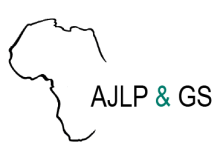Resource information
In the early 1990s to date, the private sector has continued to gain momentum in urban planning and service delivery. Among others, the penetration of neo-liberal ideology in policies and legislations empowered the engagement of private sector in urban planning domain. Subsequently many private firms have dominated the process of the preparation of details schemes including regularization of informal settlements in different cities, municipalities and towns in Tanzania. However, the institutional overlap and power relation and approach used by the private sector at the grassroot levels to mobilize resources to meet the cost of regularization of informal settlements are rarely documented and discussed. This paper uses the case of Gairo Town regularization project to illuminate on the existing institutions, actors and power relation in the private-lead regularization projects and approach used to engage the community in financing the preparation of regularization schemes. Through household surveys, official and key informant interviews, observations and mapping, steps followed by the private firms to acquire the projects from the Planning Authority to the community levels were documented and analyzed. The findings show that when there are mutually beneficial interactions among private sector, politicians and grassroots institutions, the community contributes their financial resources to prepare regularization schemes of their settlements. The institutional overlap in terms of multiple allocation of actors in different institutional levels and power relations facilitate the resource mobilization for regularization projects in the informal settlements.


